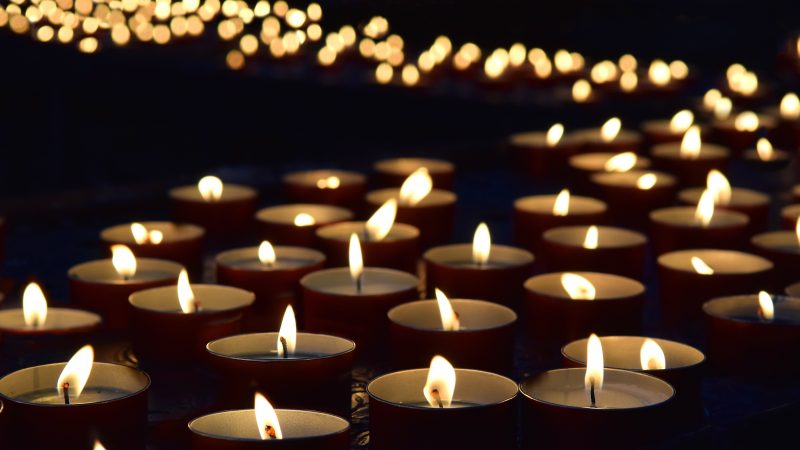
It pains me to say it, but – whatever speeches we might give this year to mark Holocaust Memorial Day – genocide and crimes against humanity have not been successfully relegated to the past. On that front, we have failed. These atrocities are ongoing, now, today, in every region of the world.
As our world continues to warm, and if the anti-democratic forces of disinformation and hate speech continue to gain momentum, these dreadful crimes will only become more common. And yet, as it stands, the UK has no clear policy on genocide and crimes against humanity, no strategy on their prevention, no means of early warning or assessing their risks, and no plan for what to do when they occur.
This stands in sharp contrast, surely, to when two years ago, as part of the national Holocaust commemoration, Boris Johnson urged us all to “stand together to make this world [one where] such unimaginable horrors are never again made real”. I find it very difficult to see how this commitment to a world without mass atrocities has practically manifested under his premiership.
The government seems committed to treating genocide and crimes against humanity in the same way it treats armed conflict. This doesn’t make sense. Mass atrocities and armed conflict have different roots and different outcomes. The beginnings of the Holocaust can be seen many years before the outbreak of the Second World War. And while the appalling trajectory of Nazi persecution continued and intensified under the cover of war, it was not some unplanned evolution of the conflict. We remember the Holocaust, its victims, and its legacy separately from our remembrance of the Second World War because they are distinct and very different traumas.
Of the 12 ongoing atrocity crises identified by the Global Centre for the Responsibility to Protect, half are occurring outside of – or in ways that are unrelated to – conventional armed conflict. The coordinated ethnic cleansing, genocide and crimes against humanity committed in the early 1990s against Bosnia’s Muslims were the reason for the conflict, not an unintended consequence. The widespread systematic violations of the Uyghurs and other minority populations in Xinjiang are not taking place in a fragile or conflict-affected state, but in peacetime China.
Sometimes, genocide and crimes against humanity take place during or under the cover of war. Sometimes, they do not. Genocide and crimes against humanity are forms of violence that are different to and distinct from war and so necessitate and deserve distinct policies, strategic thinking, resourcing and expertise.
Today, we rightly commit to honouring the Jewish, Roma, Sinti, LGBTQI+ and political communities who were persecuted by the Nazis and their allies because of an aspect of their identity. It is this pathology of widespread, violent discrimination that we must – today and always – confront, dismantle and prevent.
This cannot be done with empty words. This is precisely why I’m proud to be leading an inquiry through the international development committee into the UK’s approach to mass atrocity prevention. It’s just not good enough for the government to continue sidestepping growing pressure, including from its own MPs, to address its approach to modern atrocities relying on the limp excuse that its approach to preventing conflict is sufficient. It isn’t.
Following the genocide of Rohingya Muslims in Rakhine province in late summer 2017, the foreign affairs select committee asked the Foreign Office to “set out what lessons it ha[d] learned regarding atrocity prevention from these events and how these lessons will be applied in Burma and elsewhere in future”. The Foreign Office did not do so. A year later, this time assessing the UK’s failures in Syria, the same committee warned government to “act urgently to produce a comprehensive atrocity prevention strategy and implementation plan to ensure it moves beyond words and towards concrete actions”. Three and a half years later, no such strategy has emerged.
Last March, the Prime Minister concluded the “largest” review of UK international policy “since the Cold War”. In its outcomes paper, he committed to prioritising atrocity prevention in the new strategic framework for UK foreign policy. What that means, we still don’t know, especially with repeated questions to ministers and requests for clarity continuing to be brushed aside. The government’s excuses don’t stand up in the face of the ongoing atrocity crimes that the UK is well-placed to help mitigate.
It is true that a national strategy, or coherent public policy, on genocide and crimes against humanity wouldn’t automatically halt atrocities currently being committed, but it would enable the UK to far better uphold its obligations to the UN Convention for the Prevention and Punishment of Genocide. It would enable embassies and Whitehall to better monitor the risk factors that indicate when identity-based violence is about to increase.
A national strategy would encourage timely and effective communication between our officials in post and the ministers who have the power to act. It would make it harder for our Foreign Secretary to take a holiday during a period of acute crisis where atrocity risks soar and the window for prevention, and evacuation, is tiny. A national strategy would make it someone’s job to think about how the UK can contribute to reducing the risks of genocide and crimes, and how the UK can make sure it is not complicit in their commission.
Until we bring in a joined up, whole-of-government approach to modern atrocities that honours the collective commitment to build a world where – in the Prime Minister’s words – “such unimaginable horrors are never again made real”, the government’s statements each Holocaust Memorial Day will continue to ring hollow.




More from LabourList
Turning the page? Labour’s recovery in the polls show a path to 2029 victory
Restoration announce recommendations for NEC candidates
‘Factionalism at the top is weakening Labour – and handing a gift to Reform’